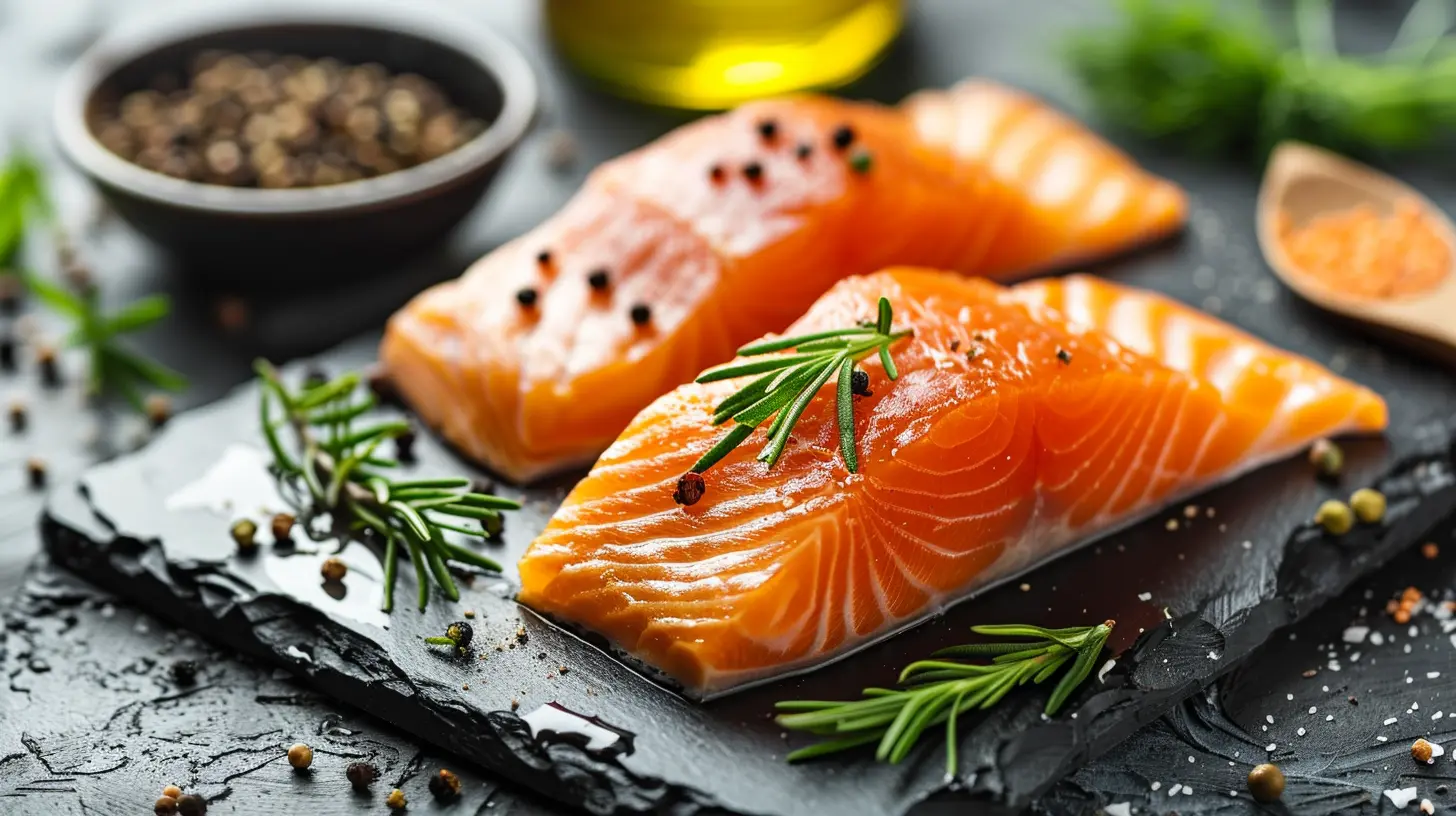The Role of Omega-3 Fatty Acids in Supporting Brain Health
11 June 2025
When it comes to brain health, one nutrient stands out: omega-3 fatty acids. These essential fats are like the fuel that keeps your brain running smoothly. Without them, your cognitive functions might slow down, your memory could fade, and your mood might take a hit. But why are omega-3s so crucial, and how can you make sure you’re getting enough? Let’s dive in and break it all down.

What Are Omega-3 Fatty Acids?
Omega-3 fatty acids are a type of polyunsaturated fat that your body can’t produce on its own. This means you have to get them from your diet. They are essential for various bodily functions, especially brain health.There are three main types of omega-3s:
1. Eicosapentaenoic acid (EPA): Found mainly in fatty fish, EPA plays a significant role in reducing inflammation and supporting mood regulation.
2. Docosahexaenoic acid (DHA): Also found in fatty fish, DHA is the most important omega-3 for brain function. It makes up a large portion of your brain’s fat content.
3. Alpha-linolenic acid (ALA): Found in plant-based sources like flaxseeds and walnuts, ALA is a precursor to EPA and DHA, but your body isn’t very efficient at converting it into these active forms.
Now that we know what omega-3s are, let’s explore how they impact your brain.

Omega-3s and Brain Development
Omega-3s, particularly DHA, are essential for brain development. From infancy to old age, they play a key role in keeping our brains functioning at their best.Prenatal and Infant Brain Development
During pregnancy, a developing baby relies on the mother’s DHA intake for proper brain formation. Studies have shown that adequate DHA levels in pregnant women lead to better cognitive abilities, improved attention span, and higher IQ scores in their children.Breast milk is naturally rich in DHA, which is why it's recommended for newborns. However, for infants who are formula-fed, DHA-fortified formulas can help bridge the gap.
Brain Growth in Childhood and Adolescence
As children grow, their brains continue to form neural connections. Omega-3s help strengthen these connections, improving learning abilities and memory. Some research even suggests that children with ADHD may benefit from omega-3 supplementation, as it can support focus and reduce hyperactivity.
How Omega-3s Improve Brain Function in Adults
Omega-3 fatty acids don’t just benefit developing brains—they also help adults maintain sharp thinking and emotional stability.Boosting Memory and Cognitive Performance
Your brain is about 60% fat, and a significant portion of that fat is DHA. This means that omega-3s are directly involved in brain cell communication. Studies have linked higher DHA levels with better memory, faster problem-solving skills, and a lower risk of cognitive decline.Think of omega-3s as the oil that keeps the gears in your brain turning smoothly. Without them, your cognitive functions can slow down, just like a rusty engine struggling to run.
Reducing the Risk of Mental Decline and Dementia
One of the biggest fears as we age is losing our memory and cognitive abilities. Research suggests that people who consume higher amounts of omega-3s have a lower risk of developing Alzheimer’s disease and other forms of dementia.These fatty acids help prevent brain shrinkage, a common occurrence in aging brains. Regular omega-3 intake has also been associated with a reduced risk of developing depression, anxiety, and even mood swings.
Supporting Mental Health and Emotional Well-Being
Have you ever noticed that your mood takes a nosedive when you’re not eating well? That’s because diet plays a massive role in mental health. Omega-3s help regulate neurotransmitters like serotonin and dopamine—the brain chemicals responsible for mood stability.Studies have found that people who consume omega-3-rich diets are less likely to suffer from depression and anxiety. In fact, some doctors even recommend omega-3 supplements as part of treatment for mood disorders.

Best Dietary Sources of Omega-3s
Now that you know why omega-3s are essential for brain health, how can you make sure you’re getting enough? Here are some of the best dietary sources:Fatty Fish (Rich in EPA and DHA)
- Salmon- Mackerel
- Sardines
- Herring
- Trout
Plant-Based Sources (Good for ALA)
- Flaxseeds- Chia seeds
- Walnuts
- Hemp seeds
- Brussels sprouts
Omega-3 Enriched Foods
- Omega-3 fortified eggs- Certain brands of yogurt and milk
- Algal oil (a great source of DHA for vegans)
If you’re not a fan of fish, you might consider omega-3 supplements, like fish oil or algae-based DHA supplements.
How Much Omega-3 Do You Need?
The recommended daily intake of omega-3s varies based on age, gender, and health conditions. However, general guidelines suggest:- Adults: 250–500 mg of combined EPA and DHA per day
- Pregnant and breastfeeding women: At least 300–900 mg of DHA daily
- Children: 100–250 mg of combined EPA and DHA per day
If you’re dealing with specific health conditions like depression, joint pain, or cognitive decline, higher doses might be beneficial. However, it’s always a good idea to talk to your doctor before starting supplements.
Can You Get Too Much Omega-3?
While omega-3s are essential for brain health, too much of anything can be a bad thing. Excessive omega-3 intake (usually from high-dose supplements) can thin the blood, increasing the risk of bleeding. In some cases, very high doses can also lead to digestive issues.The key is balance. Focus on getting most of your omega-3s from whole foods, and use supplements only when necessary.
The Bottom Line
Your brain is one of the most important organs in your body, and omega-3 fatty acids play a crucial role in keeping it healthy. From supporting fetal brain development to reducing the risk of cognitive decline, these essential fats are a must-have in your diet.Whether you’re enjoying a delicious salmon dinner or sprinkling chia seeds on your smoothie, making omega-3s a staple in your diet can pay off in the long run. So, are you giving your brain the nourishment it needs?
all images in this post were generated using AI tools
Category:
Childrens HealthAuthor:

Tiffany Foster
Discussion
rate this article
3 comments
Courtney Perry
Thank you for shedding light on the importance of Omega-3 fatty acids for brain health. This informative article highlights essential nutritional insights that can greatly benefit our overall well-being.
June 20, 2025 at 3:55 AM

Tiffany Foster
Thank you for your kind words! I'm glad you found the article informative and impactful for overall well-being.
Viva McPhail
Omega-3s are essential for optimal brain health.
June 15, 2025 at 4:16 PM

Tiffany Foster
Absolutely, omega-3s play a crucial role in brain health by supporting cognitive function and reducing inflammation.
Kael Taylor
Great article! Omega-3 fatty acids are essential for brain health, and it's inspiring to see awareness growing around their benefits. Incorporating them into our diets can truly enhance our cognitive well-being!
June 11, 2025 at 3:39 PM

Tiffany Foster
Thank you! I'm glad you found it inspiring. Omega-3s are indeed vital for cognitive health!



